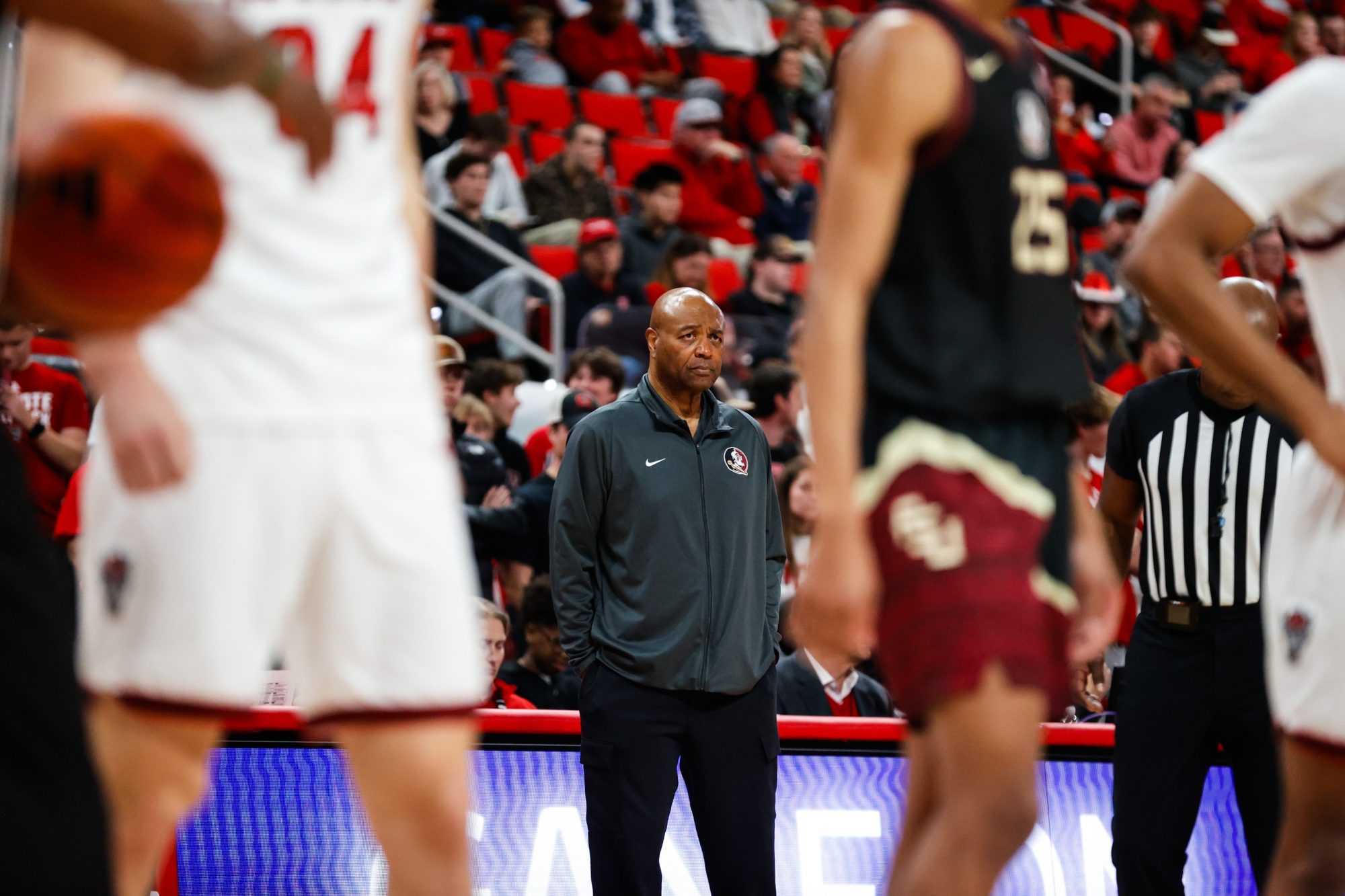Six former Florida State men’s basketball players filed a lawsuit Monday against their former coach, Leonard Hamilton, over $250,000 NIL (name, image, and likeness) payments they allege Hamilton promised them, but never paid.
Because of a February court ruling barring the NCAA from enforcing NIL rules, players are allowed to negotiate NIL offers before agreeing to commit to a program. But since the ruling, a disturbing new pattern has begun to emerge: Players across the country have alleged that coaches are making them promises of NIL earnings that aren’t being fulfilled.
The FSU players’ lawsuit, filed in Leon County, Florida court, alleges that Hamilton told all six players—and, in some cases, their families—in both verbal and written communication that they would each receive $250,000 NIL payments at some point during the 2023-24 season. The payments would come not from FSU’s NIL collective, “Rising Spear,” but from Hamilton’s “business partners.” Though FSU’s collective was involved in conversations about the payments, the promises came only from Hamilton.
The payments did not materialize, according to the lawsuit, which includes screenshots of group text messages among players, coaches, and a representative from the FSU collective—as well as descriptions of in-person meetings. So the players—Darin Green, Jr., Josh Nickelberry, Primo Spears, Cam’Ron Fletcher, De’Ante Green, and Jalen Warley—refused to participate in a practice leading up to a February home matchup against Duke. They also threatened to sit out the game itself, but Hamilton convinced them to suit up by saying the payments would hit their bank accounts within a week, according to the lawsuit.
“Hamilton made promise after promise of compensation to the Plaintiffs to secure their commitment to FSU, to prevent them from sitting out of key matchups when those promises were not kept, and to attempt to retain the Plaintiffs as members of FSU’s men’s basketball program,” the complaint read. But the players allegedly never received the money. They have since all either exhausted their remaining eligibility or have transferred to other programs.
At the heart of the dispute is whether the players have grounds to sue, given that Hamilton did not sign formal, written contracts. But plaintiff attorney Darren Heitner says he believes “we have every right to sue for breach of oral contract.”
“I spent a lot of time speaking with the players and their families, reviewing written correspondence in the form of text messages and emails and the like,” he tells Front Office Sports. “Everyone had the same stories.”
The complaint also notes other recent examples of NIL-related disputes between coaches and players, suggesting the FSU players’ situation is one of many stories of coaches making false promises to lure players to their programs, or convince them to stay.
In May, Georgia quarterback Jaden Rashada filed the first-known lawsuit of its kind: He is suing coach Billy Napier and others over alleged unfulfilled promises of $13.85 million in NIL earnings that the coaches made to convince Rashada to decommit from Miami. Then, in September, UNLV quarterback Matt Sluka announced a decision to redshirt due to “unfulfilled promises,” referring to verbal commitment made by a UNLV assistant coach that the UNLV collective would pay $100,000. He did not file a lawsuit, however.
“Unfortunately, broken promises have been a constant in the field of NIL since July 1, 2021,” the complaint said.
The complaint could be amended to add more players from last year’s team, Heitner says. The evidence Heitner reviewed suggests that every player on the 2023-24 roster was offered a $250,000 deal, he says. Heitner has already received inquiries from one player’s agent about potentially joining the lawsuit.
To prevent these situations in the future, Heitner, who has represented athletes throughout the fledgling NIL era, suggests players should ensure they have “a strong business team to protect yourself,” and that “in a perfect world” players would have signed, written contracts. But sometimes, even that isn’t enough.
“I can’t tell you how many contracts I’ve reviewed even the past month … and the documents that were put in front of me were so one-sided that we really had to spend a lot of time redlining and negotiating to get to a place where we really felt comfortable.”
Florida State released a statement saying: “Upon learning recently of the allegations made by former men’s basketball athletes, the University has worked diligently to determine what transpired last season. Though our inquiry is not yet complete, at this point we know of no unfulfilled commitments by FSU in terms of scholarships or other appropriate benefits or the Rising Spear Collective relative to NIL payments owed to the athletes.”
FSU said it supports Hamilton’s “right to defend himself against these allegations.”




![[Subscription Customers Only] Jun 15, 2025; Seattle, Washington, USA; Botafogo owner John Textor inside the stadium before the match during a group stage match of the 2025 FIFA Club World Cup at Lumen Field.](https://frontofficesports.com/wp-content/uploads/2026/02/USATSI_26465842_168416386_lowres-scaled.jpg?quality=100&w=1024)
![[Subscription Customers Only] Jul 13, 2025; East Rutherford, New Jersey, USA; Chelsea FC midfielder Cole Palmer (10) celebrates winning the final of the 2025 FIFA Club World Cup at MetLife Stadium](https://frontofficesports.com/wp-content/uploads/2026/02/USATSI_26636703-scaled-e1770932227605.jpg?quality=100&w=1024)











